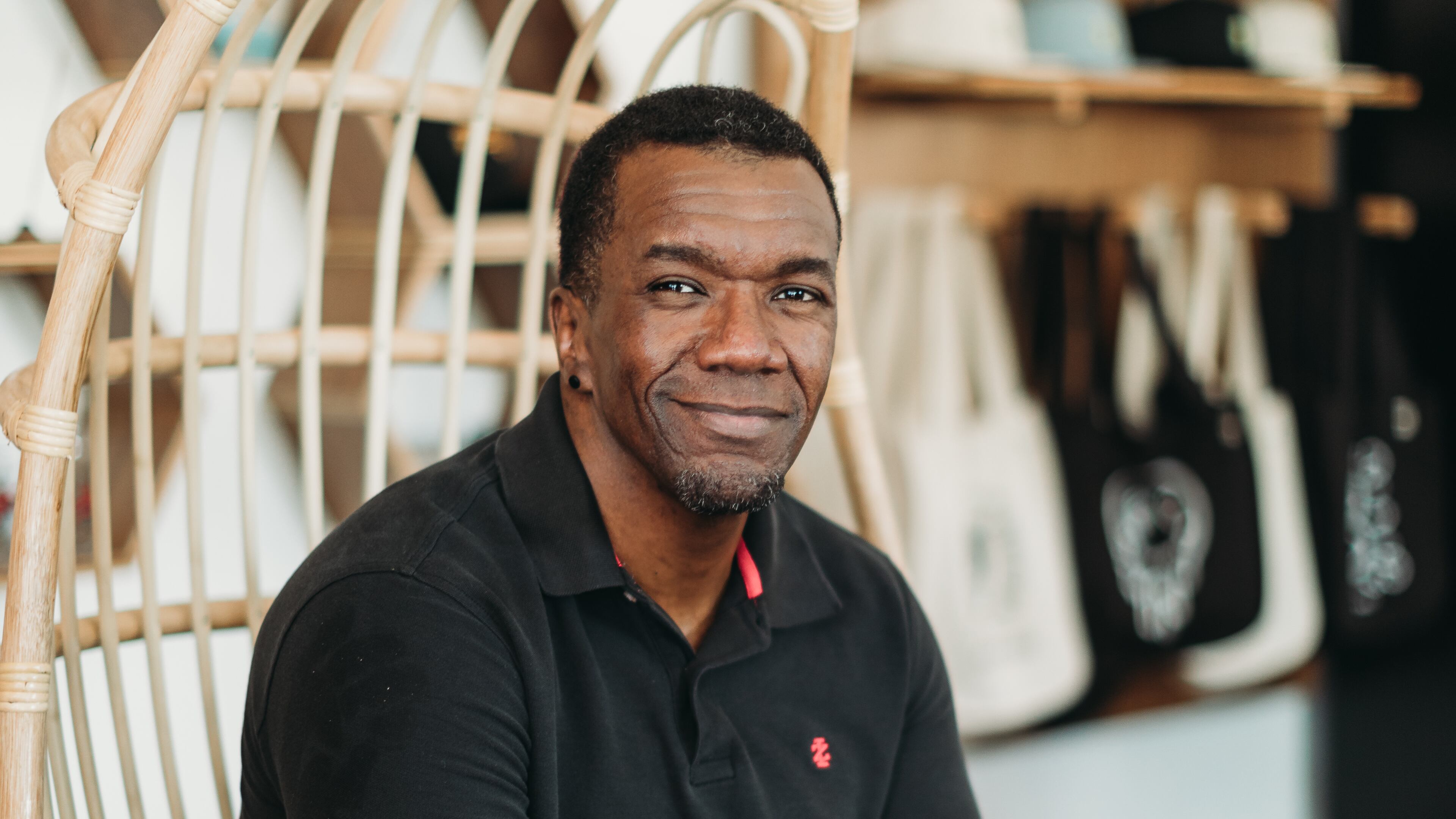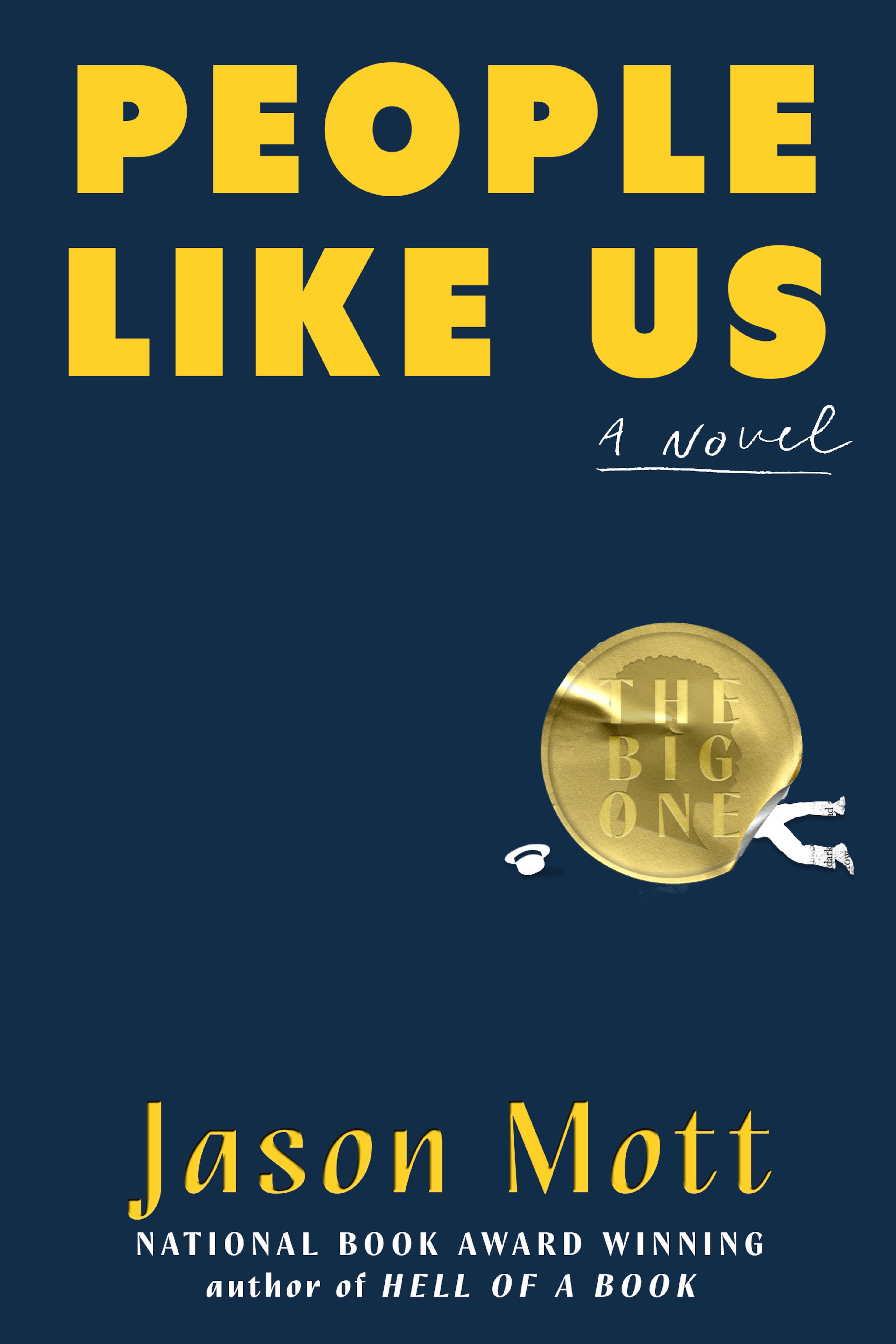Jason Mott’s metafictional saga continues with ‘People Like Us’

Acclaimed North Carolina author Jason Mott made a memorable statement about racial violence in his 2021 National Book Award winner “Hell of a Book” when he introduced his character Soot — a little Black boy who turns invisible when he senses danger.
The story follows an unnamed narrator who is an Author on a book tour promoting his bestselling novel of the same title. As the Author intersects with characters inspired by different aspects of his personality, Mott’s metafictional tragicomedy weaves together a transportive and evocative treatise on generational trauma, gun violence and mental health.
But it seems he wasn’t done, either with these characters or his auto-fictional interrogation of American life. The saga continues in Mott’s latest novel “People Like Us,” another speculative, self-referential narrative rich with satire that picks up as the Author embarks on a European book tour after winning the National Book Award. Following a death threat, the Author smuggles a gun abroad to protect himself while traveling.
Using the same structure as “Hell of a Book,” Mott reveals a second author’s saga in alternating chapters as he resurrects Soot’s character. Or perhaps that’s only how it seems at first glance? Soot could be the Author at a different point in his life, or even a character the Author has written into existence. Either way, to focus on stuffing Mott’s search for identity and belonging into something as confining as reality is to miss his larger context — and his brilliance.
Soot is now a middle-aged father and award-winning author on his own book tour who travels to a university in Minnesota that has recently endured a shooting incident. Like the Author, Soot brings a gun for protection. As the Author and Soot’s storylines flow through space and time, they ultimately converge to pose Mott’s overarching question: Can our country be saved? Or are we too damaged by “American exceptionalism and Jim Crow heritage” to keep proclaiming we are the land of the free?
A wealthy French benefactor nicknamed “Frenchie,” who hosts the Author on his book tour, believes America is irreparably broken. Frenchie is convinced “the good times are gone and will not return,” and he makes the Author an offer that’s nearly impossible to refuse: Frenchie will pay the Author an exorbitant sum of money if he agrees to stay in Europe and write stories about bygone America, before it was “devoured by the shooting and the terrorists climbing the Capitol steps, and Republicans and Democrats.” Frenchie has only one condition: The Author can never return to the United States.

The Author turns inward as he begins an intense examination of where he ends and his American identity begins, all while evading a character named Remus who is trying to kill him. Remus is an elusive figure who appears when the Author is stressed and seems to be the embodiment of generations of racial oppression. Despite Remus’ looming threat, the Author feels Europe is “a home I’ve never been to but where I’m welcome” and breathes easily on his tour for the first time in his life — for a while.
Meanwhile, Soot confesses he drives around middle America with a copy of his National Book Award winner on his passenger seat — to proclaim his identity and thwart potential violence if he gets pulled over. Soot isn’t nearly as welcome at the Minnesota university as the author is at Frenchie’s opulent mansion, and he catches flak for not rescheduling after the school’s shooting tragedy.
Soot’s disillusionment mounts as he voyages through his own history while attempting to come to terms with his daughter’s death. At times, such as when Soot’s memory of his daughter’s dramatic birth dissolves into a stunning meditation on grief, he presents the tragedy of her death as inevitable.
The inevitability of loss and destruction is a dominant theme in Mott’s narrative, as established by Frenchie’s prediction that the Author will “become the record keeper of the way America used to be, the way it never will be again.” The preordained makes another profound appearance as the Author and Remus grapple toward a conclusion they both agree is astoundingly predictable.
Another character from “Hell of a Book” whose existence challenges the Author’s sense of identity is The Kid, a child who is visible only to the Author. In “People Like Us,” the Author is amazed that Frenchie’s American-born assistant, Dylan, looks like a fully grown version of The Kid. Even after Dylan corrects the Author countless times, and the Author accepts everyone else can also see Dylan, the Author struggles to view the young man as more than a manifestation of his own subconscious.
But Dylan, who has lived in Europe for years and speaks five “Foreigns” (Mott’s word for languages), has a greater point to make about the difficulty of truly belonging in a place that has never considered itself his home.
Jason Mott didn’t just title his novel after a microaggression that is casually slipped into conversations — such as when a gun dealer says to the author, “We could use a few more people like you.” Mott invokes varying versions of the phrase 34 times as he examines the differentiator from a multitude of perspectives.
By the time the Author, his gun and his posse of vibrant cohorts who escort him on his book tour are approaching their conclusion, they have turned a phrase originally intended to separate them into a symbol of their solidarity and strength. It imparts a bit of hope that maybe, one day, Soot in America can do the same.
FICTION
“People Like Us”
by Jason Mott
Dutton
288 pages, $30

